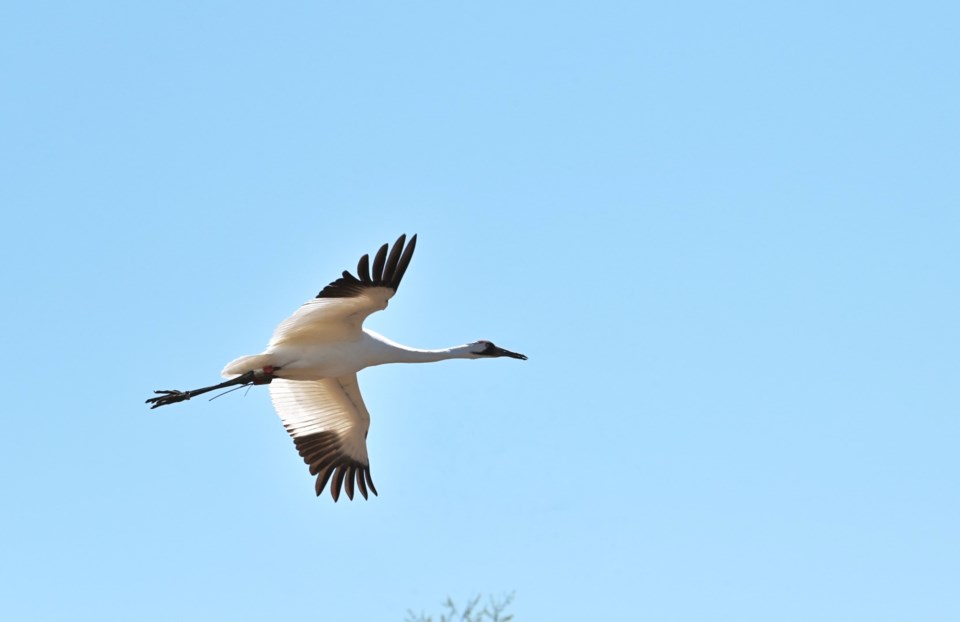Having flirted dangerously close to extinction in the 1940s due to habitat loss and overhunting, the whooping crane has staged something of a comeback.
The biggest reason the population of the tallest bird species native to North America, so named for its distinct calls, has rallied from just 21 birds in the wild to more than 800 today is conservation efforts.
And those efforts will grow after Canada’s largest oil and gas producer, Canadian Natural Resources, provided $600,000 over the next three years to support the Wilder Institute/Calgary Zoo’s .
“This is a very unique partnership with Canadian Natural that means a lot to our conservation efforts. It’s the first of its kind for us, but it doesn’t have to be the last,” said Kimberly Greenlaw, Wilder Institute’s senior manager of philanthropy and partnerships.
As part of the agreement to support the zoo’s whooping crane conservation work, members of the Wilder Institute’s animal care, health and welfare team will visit one of Canadian Natural’s oil sands mining sites in northern Alberta this spring.
Following an initial assessment, they will recommend short-term care or support to any whooping cranes in need.
“The expertise at the institute will strengthen the whooping crane recovery effort while also enhancing Canadian Natural’s environmental practices,” said Bill Clapperton, vice-president of regulatory, stakeholder and environment affairs.
Lea Randall, Wilder Institute’s senior manager of conservation programs, notes that Canada’s wild whooping crane population has increased to approximately 500 thanks to collaborative and cross-border conservation efforts.
“While this is a great achievement, the whooping crane remains listed as Endangered under Canada’s Species at Risk Act,” she said.
“We recognize the importance of forging partnerships with organizations across all sectors. By working together, we can more effectively mitigate risks to and support the recovery of this iconic bird.”
The Wilder Institute/Calgary Zoo has been part of a conservation breeding program for whooping cranes since 1992. The first chick to successfully hatch under human care at the operation was in 1994.
Since then, Calgary zookeepers have successfully hatched 54 whooping cranes, some of which have been transferred to partner organizations for release to the wild while others have remained part of their conservation breeding programs.
Whooping crane eggs laid at the Wilder Institute are sent to partner organizations in the United States, where they hatch and are reared in preparation for release in Louisiana or Wisconsin.
Currently, 10 males and seven females reside at the Wilder Institute’s offsite breeding facility, the Archibald Biodiversity Centre, located about 75 km east of Calgary.
A pair of whooping cranes will soon reside in a brand-new habitat at the Calgary Zoo, which Canadian Natural’s donation is supporting.
“The whooping crane is one of Canada’s most at-risk bird species. As ambassadors for their species, these iconic North American birds will help to educate generations of visitors about the importance of wildlife conservation,” says Greenlaw.
She sees the potential for future partnerships within the energy sector.
“Whether they are large or small companies, people do care about wildlife and conservation.”
Will Gibson is the Principal with Will Gibson Consulting Limited in Edmonton, Alta. This article was provided by the, a Troy Media Editorial Content Provider Partner.
©




